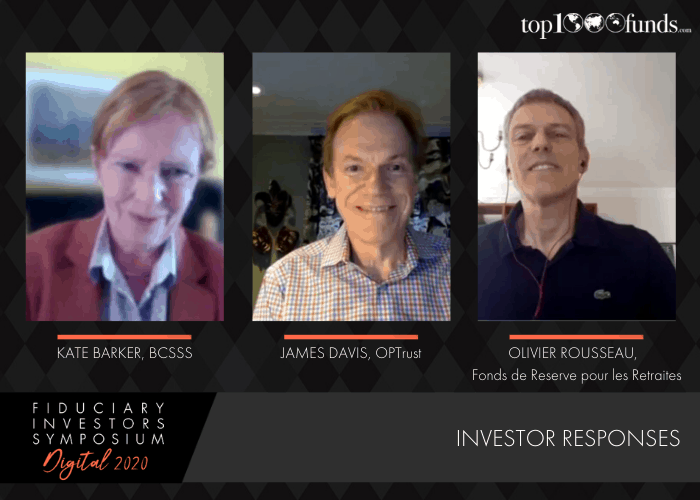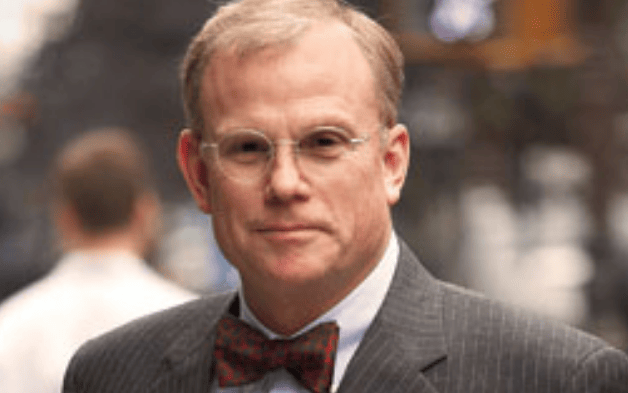FIS 2020 Digital delegates heard how the monetary response has successfully managed many elements of the crisis so far. Getting the next phase of the policy response right, particularly navigating fiscal policy, will be more challenging.
Monetary and fiscal policy has been popular so far, but it could become less so going forward, warned an expert investor panel speaking at FIS 2020 Digital.
“Policy makers will have to think hard how policy plays out in the court of public opinion,” warned Kate Barker, chair of the United Kingdom’s British Coal Staff Superannuation Scheme, chair-elect of USS, and formerly at the heart of monetary policy as a Bank of England committee member.
Governments have a balancing act ensuring demand doesn’t weaken and navigating how to tax industries and businesses that have done well in the crisis without damaging incentives. She added that these policies work well when people trust politicians, but echoing comments made by Bridgewater’s Co-CIO, Greg Jensen, trust is low in the UK and US.
In the wake of the crisis monetary policy has concentrated on keeping borrowing costs low, ensuring debt issuance is digested and liquidity maintained. Going forward the focus will shift to corporate solvency and managing inflation (here she flagged stagflation as a particular worry) where the policy response grows more complex.
“Putting rates up to dampen economies when there is so much borrowing is going to be very difficult,” she warned adding that setting interest rates could “become a bit of nightmare” for policy makers.
Amongst all the talk of policy, Barker also urged delegates to remember the private sector. The private sector has adapted well to the crisis – don’t kill it with tax changes in the wrong direction, she urged.
“The pandemic has led to the most difficult investing period I’ve ever experienced,” said James Davis whose investment career spans 30 years, most recently as CIO of Canada’s $22 billion OPTrust. A cacophony of risk from stagflation, zero and sub-zero interest rates and uncertain fiscal policy have made for unprecedented times. After four decades of interest rates heading steadily lower, monetary policy has become a “blunt instrument” and reached peak effectiveness. Now the levers are likely to shift in favour of fiscal policy “playing a much bigger role” and brining new risks, he said.
He urged for robust debate on the governance that sits behind fiscal policies and cautioned against past mistakes. For example, in the 1930s and 1940s stimulus deployed to lift the US out of the Great Depression met the brake of tightening monetary policy causing “a significant economic set back.” Similarly, a risk in the COVID-19 response is that policy makers, worried about debt bubbles and deficits, stop fiscal measures but monetary policy fails to fill the gap.
As for solutions, OPTrust, which runs a hedging portfolio and a return seeking portfolio with a focus on private markets, is looking at ways to counter the fact defensive assets no longer bring returns as interest rates head ever lower. The fund is increasingly exploring how to use private market assets in a more resilient way: real estate and infrastructure are more resilient in inflationary and deflationary environments, he said.
“The only way to deal with this is to build a portfolio that is as resilient as possible. But this is getting harder and harder.”
Fellow panellist Olivier Rousseau, executive director of France’s Fonds de Reserve pour les Retraites was equally pessimistic. Reflecting on a pervasive “exhaustion” he said policy options are exhausted, there is “no juice” in asset classes leaving investors choosing “the least ugly,” adding that trust between nations is also exhausted.
France’s FRR is also having to navigate other challenges. The French government has drawn €5 billion from its €30 billion portfolio to help finance the Covid-19 crisis. Positively, Rousseau said the fund has now got authority to invest in more risk and illiquid assets with a long enough time horizon to model “a return to the mean for equity valuations.” The fund also has more room to invest in more illiquid investments, although this is mostly confined to France.
Reflecting on the wider geopolitical backdrop, Rousseau said the “Chinese miracle” has been a “delusion” leading to neither democracy nor China striking fair economic relationships with the rest of the world. Here he referenced Africa and China’s growing military power in the South China Sea as examples.
He noted that Europe, “on the losing side” of the 2008 financial crisis and now also suffering greatly in the wake of the pandemic, is facing particularly tough times. Something he attributed to the challenge of uniting northern and southern Europe.
“We are not a nation,” he lamented, adding that the continent is stuck between the US “which is letting us down” and China “which will not be a better master than the US.”
Barker noted purposeful companies will become a key theme for equity investors in the coming years. Equity analysts will need to know “the granular stuff” about companies from how they motivate employees to their treatment of suppliers. ESG is no longer a “glossy document” but a living thing, she said. She added that consumers must also drive change; if customers revert back to buying the cheapest products in the wake of the pandemic, progress on purposeful companies will stall.




